In the video game of building wealth, Level 1 is where I see most people get stuck.
Instead of investing their money, they save money in the form of cash — either in a bank account, or literal physical cash under their mattress.
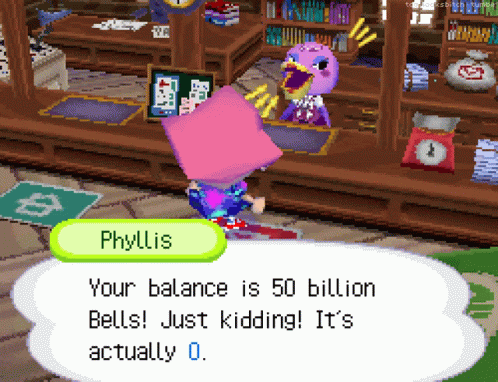
Sure, saving is better than living paycheque-to-paycheque…
But if you’re saving in cash, inflation will slowly drain your wealth… like a hidden boss in a video game.
So what should we do with our cash instead?
Today, we’ll cover:
What is Inflation
How Inflation Drains Your Wealth
Budgeting
Emergency Funds
The Ideal Mindset for Using Cash Effectively
And as always, you can watch the video version on YouTube:
Let’s dive in.
Cut Through Noise with The Flyover!
One Email with ALL the News
Ditch the Mainstream Bias
Quick, informative news that cuts through noise.
Inflation is often defined as the rate of increase in prices.

Inflation defined by the IMF (the government)
When you experience the price of things like groceries, gasoline, and living costs increasing, that is inflation in action.
However, there is another way of defining inflation which is just as accurate:

Inflation is the decrease in purchasing power of your money.
In other words, inflation causes your money to purchase fewer and fewer things over time.
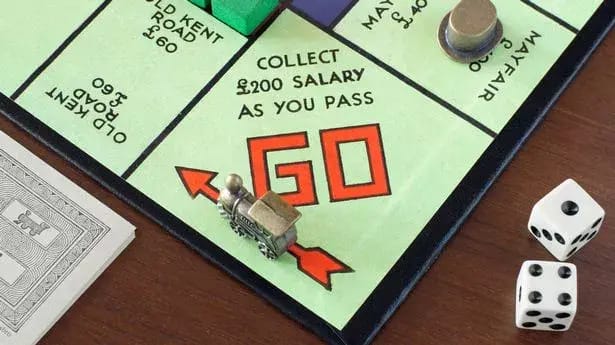
Imagine playing Monopoly but every time you pass GO, instead of gaining $200, you lose $200.
That is what inflation does to your cash.
The key difference is that inflation shrinks your cash secretly. The number you see in your bank account doesn’t change! But the amount of things you can buy decreases over time.
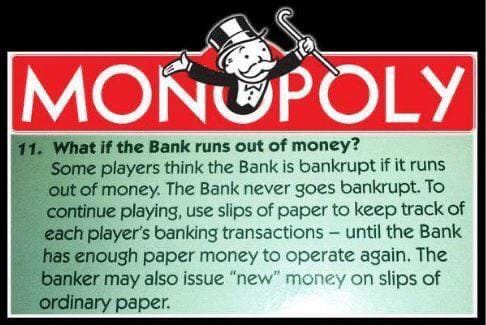
Interestingly, the bank in Monopoly works very similar to the central bank in real life…
Action Item: Calculate what % of your money you are currently holding in the form of cash. We’ll come back to this later.
Budgeting (Checking Your Inventory)
Whether you’re living paycheque-to-paycheque, or you’re already saving leftover cash from your income, you need to have a budget.
If you’re struggling to save, a budget will help you address that problem.
And if you’re already saving, then a budget will help you build an emergency fund (which is the next step) and start investing your money.
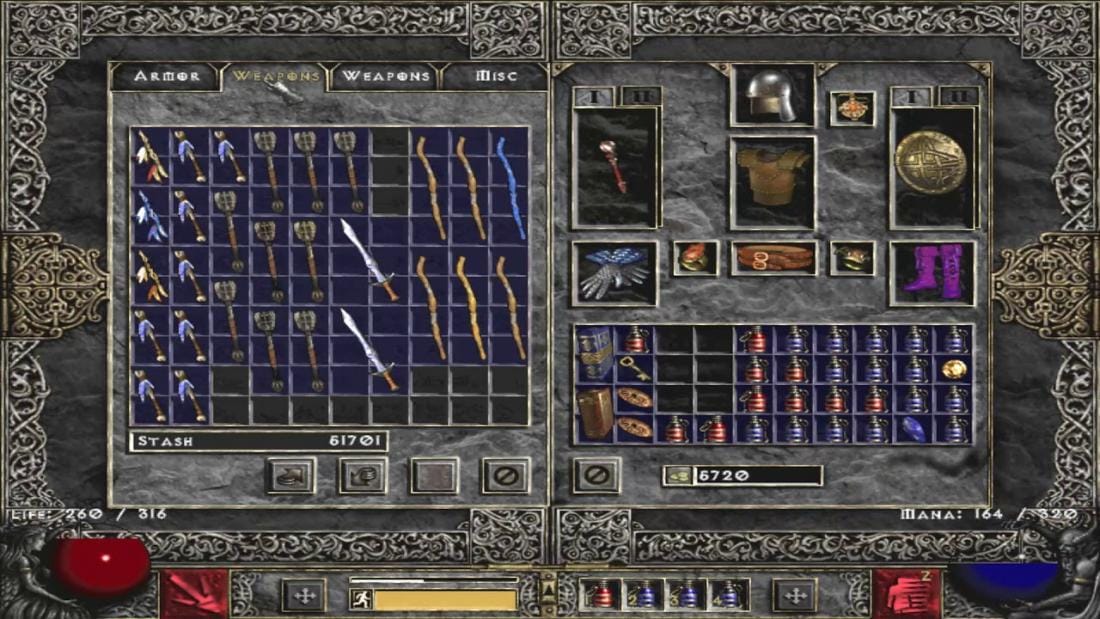
Budgeting is like understanding what you have in your character’s inventory
Having a budget is like checking your inventory in a video game, before going out on an adventure. Most importantly, you’ll want to:
Track Your Income & Expenses: Just like you keep tabs on your gear and resources, monitor how much cash you’re adding (income) and subtracting (expenses) each month.
Set Spending Limits: If you notice that you’re spending too much on a certain category (e.g. shopping), then set a limit to reduce your expenses and increase your savings.
Action Item: If you’re spending more than you’re earning, you need to cut some of your spending. If you’re earning more than you’re spending, then great! We can move on to the next step.
Emergency Funds (Your Extra Life)
Now that you understand inflation and have your budget… you might be tempted to ditch all of your cash and start investing right away.
Not so fast!
Investing before you have an emergency fund would be like playing a video game where if your character dies, you have to restart from the beginning. Game over.

Grab an extra life before you start investing!
An emergency fund is your extra life.
God forbid, should you have a health emergency, or face a situation where you need to access your money quickly, you’ll want to have some cash set aside.
This is what many investors call liquidity.
If you have an unexpected medical bill, home repair, or you lose your job, you want to be able to access your money very fast.
Cash can be accessed instantly, meaning it is very liquid. Whereas if you invest in a house, it would be very hard to turn the house into cash, meaning it is not liquid.
Liquidity is an important concept to understand as you progress through your investing journey. If there’s interest, I’ll do more articles and videos on it in the future.
Action Item: Create your emergency fund!
Refer to Your Budget: Take a look at your average monthly expenses
Multiply by 3 to 12: Aim for 3-12 months’ worth of living expenses. This will depend on your personal preference.
Keep It Safe: Some opt to hold their emergency fund in physical cash, whereas others choose to hold it in a separate savings account at their bank.
Why People Get Stuck at Level 1
Unfortunately, many people never make it past Level 1. They go years or even decades saving in cash.
And because of inflation, they never get to see their wealth truly grow.
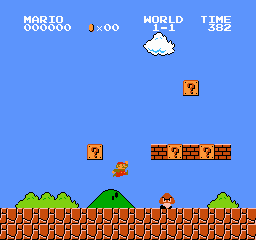
A lot of people get comfortable in Level 1, and never get to experience the rest of the video game.
There are many reasons for this:
Cultural values - Many cultures value saving in cash for historical reasons. Countries that experienced a banking crisis will have a distrust for banks, and will prefer holding physical cash, for example.
Lack of financial education - Oftentimes, people just don’t know better. “Saving” is intuitive, and so many think that putting cash aside is enough to build wealth.
No access to investments - This likely doesn’t affect you if you’re reading this newsletter from your laptop or iPhone, but for billions of people that live in the Global South / developing countries, they simply don’t have access to investments or a bank account like we do.
As I mentioned at the outset, saving cash is obviously better than not saving at all. But if you’re not investing that cash, you’re missing out on a huge amount of wealth.
The Ideal Mental Model for Cash

Like Peppy the Hare would say, use cash wisely!
Instead of saving ALL of your money in cash, you should use cash wisely.
Create a budget, set aside an emergency fund, and then invest the rest of your cash in assets.
A useful analogy here is to think of cash as a health potion in a video game.
In a video game, you generally want to have a couple health potions on you (i.e. your emergency fund) in case you get into a dangerous situation. You wouldn’t want to have zero health potions.
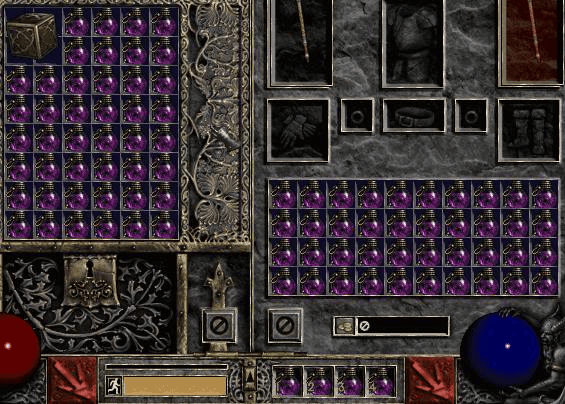
Health potions are important, but you wouldn’t fill your entire inventory with them!
But you also wouldn’t spend all of your gold on health potions (i.e. save all your money in cash). That would just be wasteful.
And if you’re wondering what you should be investing your cash in, that’s a question we’ll address in Level 4…
But before we start investing, we need to beat Level 2. And Level 2 features yet another common trap that hinders people’s financial journey…
Financial Advisors.
Have a great weekend, and see you all next week.
To your prosperity,
Brandon @ Wealth Potion
Build in Public Update
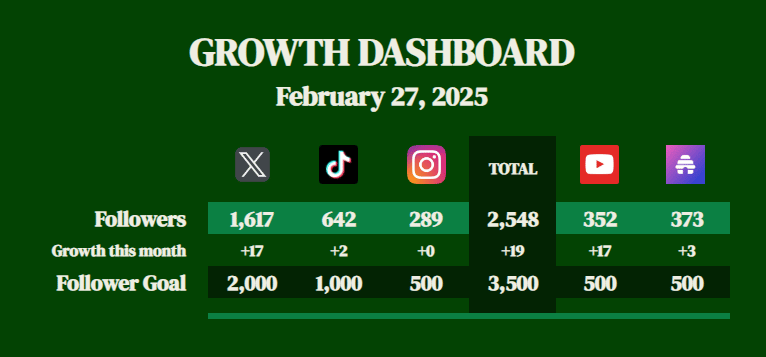
YouTube growing, other socials are slowing down
Do you ever buy a new book, and then feel guilty because you’re still in the middle of your current book?
Or worse, you have like 4 or 5 books on the go, but you still want to buy another book, so you do…
Nassim Taleb has a brilliant concept called the antilibrary. Instead of feeling guilty about the books you haven’t read, you should feel proud of them.
It is foolish to think that you have to read all the books you buy, as it is foolish to criticize those who buy more books than they will ever be able to read. It would be like saying that you should use all the cutlery or glasses or screwdrivers or drill bits you bought before buying new ones.
I’m starting to think about my business in the same way.
As I started to come up with new ideas for Wealth Potion — either through my own research, or through talking with friends and mentors, or through trial and error — I would feel a pang of guilt.
Guilt that I have so many things on my plate and that I can’t accomplish all of them.
But just like the antilibrary, this long list of ideas should be empowering, not limiting. Now, I can go to my “medicine cabinet” of ideas and have a larger array of options to select from.
I have tons of ideas for Wealth Potion that I will share (and implement) over the coming weeks. But I hope this framing helps you like it did for me.
A good library is filled with mostly unread books. That’s the point. My library serves as a daily reminder of what I don’t know.


